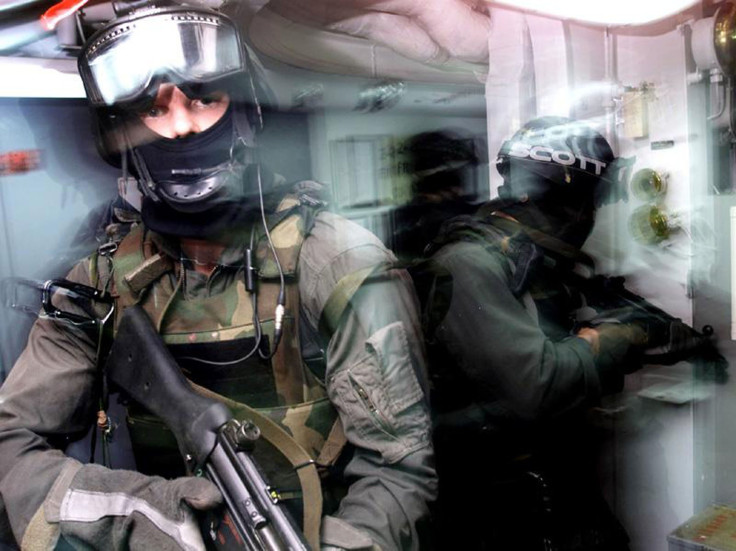Trump Allows Chief Gallagher To Keep Trident, Tells The Navy To 'Get Back To Business'

- Trump says Chief Edward Gallagher's case handled badly from the beginning.
- Tells Navy to "go back to business"
- Our take: Navy tried to create a politically correct image for special operations operatives.
The Navy continues to take a beating from the President over its handling of the case against Chief Edward Gallagher, who was accused of multiple counts of dereliction of duty in a war zone, including murder, attempted murder and posing with the corpse of a deceased Islamic State fighter.
The naval leadership had convened a board to determine the fitness of the SEAL chief and to determine whether or not they were going to remove his coveted Trident pin, which symbolizes membership in the SEALs. Sources told the International Business Times that the Navy leadership was concerned that regardless of what was determined by the board, the President was going to step in and reverse the decision.
That is precisely what happened Thursday morning. President Trump tweeted his support for the embattled Navy SEAL and stated that they would not be removing his Trident pin and that it was time to "get back to business." He cited the poor handling of the case by the U.S. Navy.
Our Take: Navy Tried To Be Politically Correct
No matter where you fall on this issue, it's crucial to realize that Chief Gallagher is not the first person in the history of the military to pose with a corpse of an adversary on the battlefield. It's actually a pervasive thing and the general feeling from veterans across the services is that if one person is going to be punished for it, then everybody should be punished for it.
However, in the history of the U.S. military, nobody has ever been brought before a court-martial on charges of posing with a corpse of a foe. The Navy has done a horrible job of handling this case from the very beginning, and President Trump has echoed that sentiment. For a branch of the service that is steeped in such honor and tradition, the Navy sure hasn't shown it thus far in this case.
The military is not a democracy, and the entire case started when subordinates were unhappy with their treatment and decisions by their leader. They came together to level charges against Chief Gallager after returning home from a deployment. Chief Gallagher was acquitted of all the charges except for the lesser charge of posing with a corpse, and while that might not seem like proper decorum, it happens.
A source indicated to International Business Times on Wednesday that the Navy leadership felt that Presidential involvement would weaken the command structure of the United States Navy, rendering its leaders ineffective. In this case, that seems to be what might need to happen. Chief Gallagher did not do anything that jeopardized the safety of his team or the mission; the job that these men do is one of the most difficult on the planet, and there is no rule book for accomplishing the task.
The real problem here is that the Navy has attempted to generalize and create a politically correct image for special operations operatives. War is hell and that is a terrible precedent to set because if you take away the tip of the spear, then the weapon essentially becomes useless. While photographs may be in poor taste the effectiveness of one's ability to do their job is not determined by pictures that are taken on the battlefield.
It would be one thing if the court-martial had found the Chief guilty of murder or attempted murder; it's a whole other thing to continue to persecute the man after the President has expressed unwavering support, even going so far as to overstep leadership. Maybe it is time to get back to business as the President said.
© Copyright IBTimes 2024. All rights reserved.






















